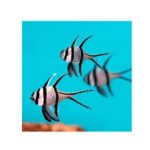
Dragons are one of the most significant and revered symbols in Chinese culture, representing power, strength, prosperity, and protection. These mythical creatures hold a prominent place not only in Chinese mythology and folklore but also in various religious rituals and blessing ceremonies. The connection between dragons and Chinese worship rituals is deeply rooted in the country’s history, reflecting a strong belief in the divine power of dragons to bestow blessings, protect the land, and promote prosperity.
This article explores the role of dragons in Chinese worship rituals and blessing ceremonies. We will delve into the historical and cultural significance of dragon-related practices, the types of ceremonies where dragons are central figures, and how these rituals reflect the Chinese understanding of divine intervention, blessings, and protection. By understanding these aspects, we gain a deeper appreciation for the dragon’s symbolic power in Chinese spirituality and culture.
1. The Dragon in Chinese Culture: Symbolism and Significance
Before delving into specific rituals, it’s essential to understand the broader cultural significance of the dragon in Chinese society. The dragon is a creature of immense power and authority, often depicted as a long, serpentine being with the features of several animals, including a camel’s head, a horse’s mane, and a fish’s body. The dragon is considered the ruler of water, storms, and rain, and is believed to have the ability to control natural forces and bring prosperity.
In Chinese folklore, dragons are commonly associated with the emperor, who is often referred to as the “Dragon Son of Heaven.” This title signifies the emperor’s divine right to rule and his responsibility to maintain harmony between heaven, earth, and humanity. The dragon, as a symbol of imperial authority, was often used to reinforce the emperor’s connection to the divine and his role as a protector of the people.
Dragons also symbolize abundance, wealth, and good fortune, which are central themes in many Chinese rituals and festivals. In Chinese cosmology, the dragon represents the harmonious balance of the universe, as it embodies elements of fire, water, and earth, making it a symbol of both creation and destruction. This duality of the dragon is reflected in its role in various rituals, where it is believed to bring both blessings and protection.
2. Dragons in Traditional Chinese Worship Rituals
Dragons play a central role in several traditional Chinese worship rituals, especially those associated with imperial ceremonies, religious practices, and seasonal festivals. These rituals often seek to invoke the power of the dragon for blessings of prosperity, fertility, and protection against disasters. Let’s explore some of the key rituals in which dragons are featured prominently.
The Dragon Boat Festival (Duanwu Festival)
The Dragon Boat Festival is one of the most well-known and widely celebrated traditional festivals in China. It takes place on the fifth day of the fifth month of the lunar calendar, and its main feature is the dragon boat races. The festival has its roots in ancient worship rituals to honor the dragon and seek its blessings.
The Dragon Boat Festival originated as a way to honor Qu Yuan, a poet and statesman, but it also has strong connections to dragon worship. During the festival, dragon-shaped boats are raced in rivers, symbolizing the dragon’s power over water. This ritual is believed to summon the dragon’s protection, ensure an abundance of water resources, and protect communities from floods and other natural disasters.
In addition to the dragon boat races, the festival also includes offerings to the dragon gods and ancestral spirits. People prepare traditional foods such as zongzi (rice dumplings) as offerings to the gods, and the ritualistic activities are believed to bring good fortune and drive away evil spirits. The connection between the dragon and water is particularly significant in this festival, as the dragon is believed to control the flow of water and bring rain for a prosperous harvest.
Dragon Worship in Imperial Ceremonies
In ancient China, the emperor was considered the “Son of Heaven” and had a divine mandate to rule. The emperor’s connection to the dragon was symbolized in various imperial rituals, where the dragon was seen as a representation of the emperor’s power and authority. The dragon was used extensively in royal ceremonies, particularly during the sacrificial rites to honor the gods and seek their blessings.
One of the most important rituals in this regard was the Heavenly Sacrifice (Tianchang), a ceremony held at the Temple of Heaven in Beijing. During this sacrificial rite, the emperor would offer prayers to the heavens, asking for good harvests, prosperity, and protection for the empire. The emperor, dressed in ceremonial robes adorned with dragon motifs, would perform the ritual in the presence of the dragon’s symbolic representations, such as dragon-shaped altars and dragon incense burners.
The dragon’s role in these imperial rites was not merely symbolic; it was believed that the emperor could channel the dragon’s divine power to ensure the well-being of the people and the stability of the empire. The connection between the emperor and the dragon reinforced the belief that the emperor’s authority was sanctioned by the heavens, and that through his connection to the dragon, he could bring peace and prosperity to the nation.
Dragons in Religious Ceremonies: Taoism and Buddhism
In Taoism, dragons are considered powerful spiritual beings that possess immense cosmic energy. They are often invoked during Taoist rituals, especially those aimed at seeking divine intervention for health, wealth, and protection. Taoist priests may perform ceremonies that include offerings to dragon deities, including the Dragon King, who is believed to govern over rivers, lakes, and seas.
The Dragon King is often depicted as a benevolent figure who can bring rain and good fortune to the land. In Taoist temples, offerings of incense, fruits, and symbolic treasures are presented to honor the Dragon King, and devotees pray for prosperity, protection, and divine favor. These rituals are believed to ensure the dragon’s favor, leading to an abundant harvest and protection from natural calamities such as floods and droughts.
In Buddhism, the dragon is also an important symbol, representing strength, wisdom, and the ability to overcome obstacles. In Buddhist temples, dragons are often depicted in statues, murals, and paintings. They symbolize the protection of the Buddha’s teachings and the power of enlightenment. In certain Buddhist rituals, the dragon is invoked to bring spiritual protection and blessings to practitioners.
The connection between dragons and religious worship is not limited to Taoism and Buddhism. In Chinese folk religion, dragons are frequently called upon during rituals for blessing homes, businesses, and individuals. The belief that dragons can bring good fortune and protect the faithful is deeply ingrained in local traditions.
3. Dragons and Blessing Ceremonies: Seeking Prosperity and Protection
In Chinese culture, the dragon is often invoked during blessing ceremonies to bring good fortune, protect against evil spirits, and ensure success in various aspects of life, including business, family, and health. These ceremonies can take place during major festivals, weddings, births, or even personal milestones. The blessings associated with dragons are not only for material wealth but also for spiritual well-being.
Wedding Ceremonies
Dragons play a prominent role in traditional Chinese wedding ceremonies. The dragon and phoenix motif is frequently used to symbolize the union of the bride and groom, with the dragon representing the groom and the phoenix representing the bride. This pairing is believed to bring harmony, prosperity, and fertility to the couple.
In some wedding ceremonies, couples may incorporate dragon-themed decorations, such as dragon-shaped lanterns, dragon carvings, or dragon-adorned wedding attire. These symbols are meant to invoke the dragon’s blessings, ensuring that the couple’s marriage will be filled with good fortune and harmony. The dragon’s connection to fertility and prosperity is especially significant, as it is believed to bless the couple with children and wealth.
Business Blessing Ceremonies
The dragon is also commonly invoked during business opening ceremonies. Entrepreneurs may hold rituals to honor the dragon and seek its blessings for success, prosperity, and protection in their ventures. This practice is particularly common in China’s urban centers, where the dragon is seen as a powerful symbol of business success and financial stability.
During these ceremonies, business owners may place dragon figurines or paintings in their shops or offices to attract good luck. They may also perform offerings, such as burning incense or presenting symbolic gifts, in the hope that the dragon will bring financial gain and drive away negative energies.
Home Blessings
In many households, the dragon is a symbol of protection and prosperity. During significant life events, such as moving into a new home, people may hold a blessing ceremony to invite the dragon’s energy into their homes. This often involves placing dragon figurines or paintings in the home, particularly in areas that are believed to attract prosperity, such as the entrance or the living room.
In traditional Chinese culture, the dragon is also believed to protect the family from misfortune and evil spirits. It is common for families to hang dragon symbols or statues in their homes to ensure the family’s safety, peace, and happiness.
4. Conclusion: The Enduring Power of Dragons in Worship and Blessing
The dragon’s role in Chinese worship rituals and blessing ceremonies is deeply intertwined with the culture’s belief in divine intervention, protection, and prosperity. Whether in ancient imperial rites, folk traditions, or modern-day ceremonies, the dragon continues to serve as a symbol of power, divine favor, and the interconnectedness of all things in the universe.
Dragons in Chinese culture represent more than just mythical creatures; they are revered as divine beings capable of bringing about positive change, whether through ensuring good harvests, protecting the faithful, or blessing individuals with prosperity. Their enduring presence in worship rituals and blessing ceremonies speaks to their importance as symbols of balance, harmony, and cosmic energy.
As Chinese culture continues to evolve, the dragon remains a timeless symbol of hope and protection, reminding people of the powerful forces that shape the world and the blessings that can be sought through reverence, faith, and ritual.










